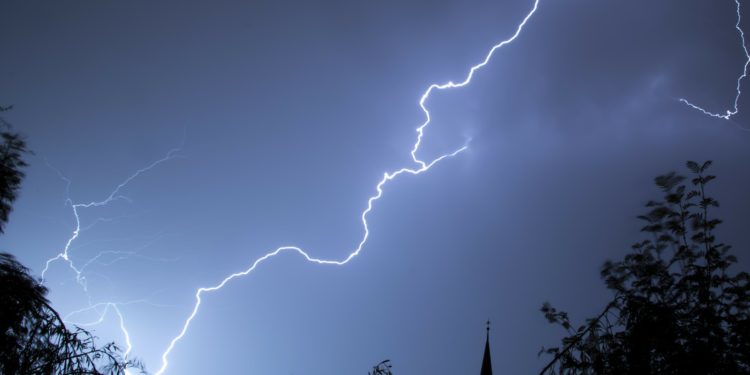
How Does Rain Affect My Pond?
In Colorado, we have more sunny days than rainy ones. After a thunderstorm you may notice your pond greening up. Here are three ways rain affects ponds: Does Rain Affect My Pond?
1. Runoff: Fertilizer and Pesticides
If you’ve recently added fertilizer to your lawn (which is made of ammonia and phosphorus) or used pesticide nearby, it may run off into the pond which can cause an algae bloom or even harm fish. When a pond is at the lowest point in the yard, it is open to problems from runoff. When planning pond placement, make sure it is not at the lowest point. If it already is, refrain from using chemical fertilizers. You may want to add some detoxifier for the health of your fish and do a partial water change if you believe fertilizer or pesticide has been washed into the pond.
2. The Secret Ingredient: Lightning
Amazingly, lightning separates molecules creating nitrogen. That nitrogen dissolves in the moisture in the clouds and in turn, rains down! Nitrogen is the key component in fertilizer. During a lightning storm it is literally raining down fertilizer! Ever notice how green the grass is right after a thunder storm? Its not just from the water, but from the nitrates (fertilizer) the lightning produces.
Basically: Lightning increases nitrates. Nitrates feed the algae.
To counteract this influx of nutrients, give your pond an extra dose of beneficial bacteria soon after the storm passes. You may want to do this every 3 days for about a week, then back off to every week.
3. The Balance has been thrown off
Ponds are ecosystems within themselves. When they receive a lot of rainwater, it can affect the balance of that ecosystem. Make sure you keep the waterfall running, to keep it aerated. Give it an extra dose of beneficial bacteria right after a rainstorm and then again in 3 days. Re-establishing the balance in the system with beneficial bacteria is the way to keep algae blooms at bay.
